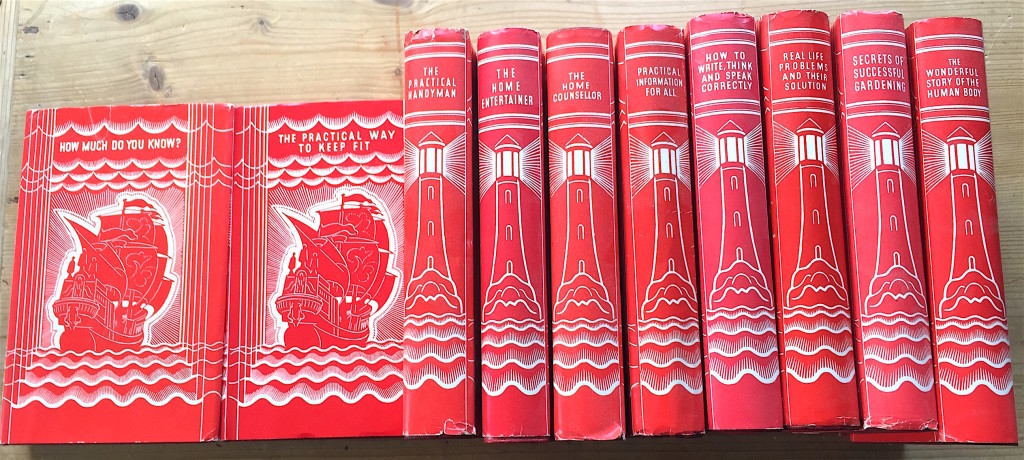Found- How much do you know? The book of a thousand questions and answers. It was edited by Harold F. B. Wheater and published in London (Oghams Press, circa 1937.) It is part of a set of 10 practical self improvement books bought in a secondhand bookshop (Chapel Books, Westleton). Condition was way above average but the books are of modest value.

Some of the information is very dull but at JOT we occasionally do dullness. Some info is very dated and some possibly erroneous - if the Ying Lo Ta Tien was 23000 books that would put it on a par with a printed out version of Wikipedia 2016 (in English). Possibly volumes were thin with big lettering...the first entry sounds like the luckiest accident ever and the one on Schubert is a tragedy and a terrible waste- what was sold for 8 shillings would probably now make £8 million.
What is the largest gold nugget ever found?
The 'Welcome Stranger', discovered by accident in Victoria, Australia, in 1869, through a cart making a rut in the ground. It weighed 2520 ounces.
What was the world's largest encyclopaedia?
The Ying Lo Ta Tien, or Great Standard of Yung Lo, compiled in China by order of the emperor of that name during the fifteenth century A.D. It consisted of 22,937 books and contained nearly 367,000,000 written characters. Only three copies were made; two perished when the Ming dynasty fell in 1644; the third (with the exception of a few volumes) was destroyed in the siege of the Legations at Peking (Peiping) by the Boxers in 1900.
When were beards forbidden?
In the reign of Peter the Great (1672-1725), Tsar of Russia. As part of his programme to westernise the country, Peter ordered his subjects to shave off their beards, under threats and other punishments. The Tsar himself removed the beards of his courtiers with his own hand; but polar opposition became so strong that he was obliged to compromise, and the Russians were allowed to keep their beards on payments of a tax, which in some cases amounted to £42 yearly. A token was worn round the neck to show that money had been paid.
Whose music was sold as waste paper?
Franz Peter Schubert (1797-1828), the "most poetic of musicians", as Liszt called him. A native of Vienna, he began composing at thirteen, and throughout his short life poured out music with almost incredible fertility. Over 600 songs, thirteen completed operas, and nearly 400 other compositions, including symphonies, masses and sonatas, are known to be his work. There may have been more; seven of his symphonies were not discovered until theory years after his death. Up till 1825 publishers would rarely accept his work, or if they did, paid him the merest pittance for it; exquisitely beautiful songs were sold for a few pence each, and £20 was the most he ever received for a single composition. After his death, so it is said, a large sack of manuscript music found in his room was sold as waste paper for about eight shillings.
Why are no motor races held on English roads?
In England the law does not permit of the closing of roads for racing purposes. British road motor-races are therefore held in the Isle of Man and Ireland.
Who was known as the boxing poet?
Lord Byron, who practised the art with the object of improving his figure. He received instruction from "Gentlemen" Jackson, champion of England from 1795 to 1800. Reproved for consorting with a pugilist, he retorted that Jackson's manners were "infinitely superior to those of the fellows of the college whom I meet at high table." In spite of a club foot, Bryon was also a cricketer, and from boyhood a "record" swimmer.
On the subject of boxing poets see our old Bookride entry on Arthur Cravan.

In the spririt of jotting, maybe the “few volumes” of the third copy of the Ying Lo Ta Tien encyclopedia that escaped destruction are the ones in the Bodleian (19 volumes, in fact). They are part of the Backhouse collection – the same Edmund Backhouse that Trevor-Roper so entertainingly wrote about in “The Hermit of Peking”.
Many thanks – you may be right. Funny, I have not seen Fleming’s Backhouse book for a while. Maybe someone from the Bodleian will let us know but it sounds right. N
“Peter ordered his subjects to shave off their bears, under threats and other punishments. ”
Faced with that choice I’d take my chance with Peter and his threats.
Jot’s only stenographer dropped a vital ‘d’ – fired and immediately rehired! Typo corrected and sense restored. Thanks Roger.